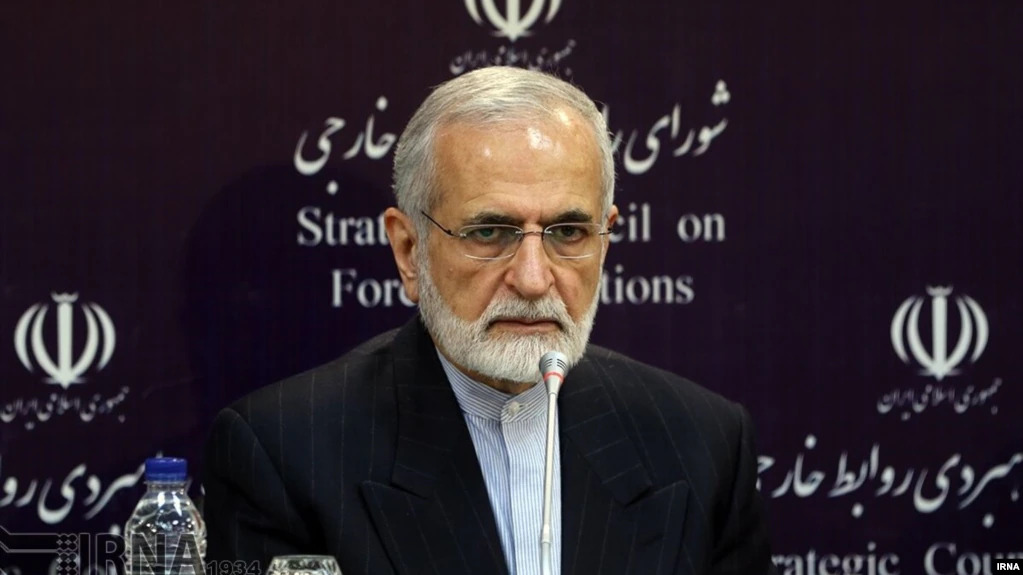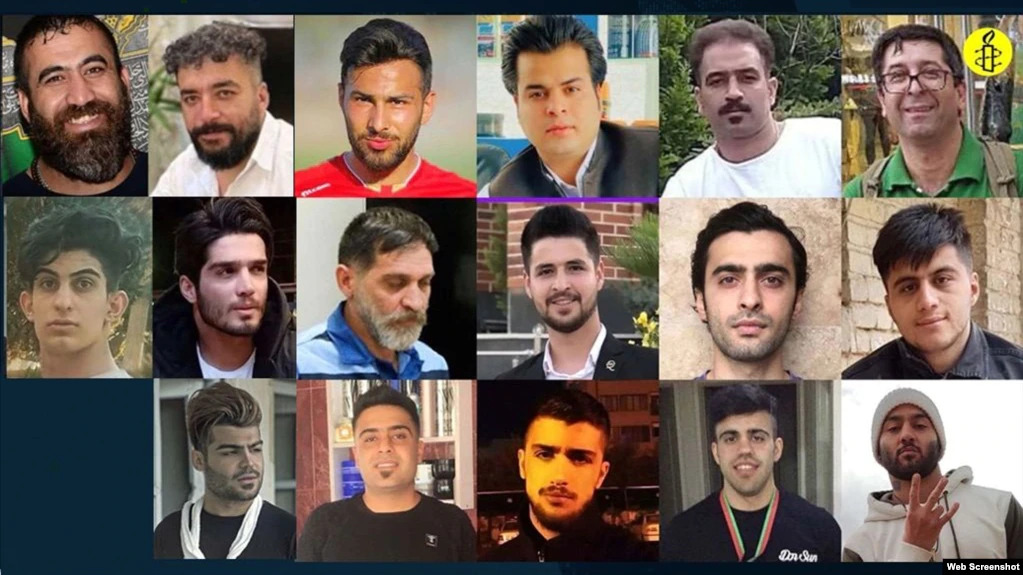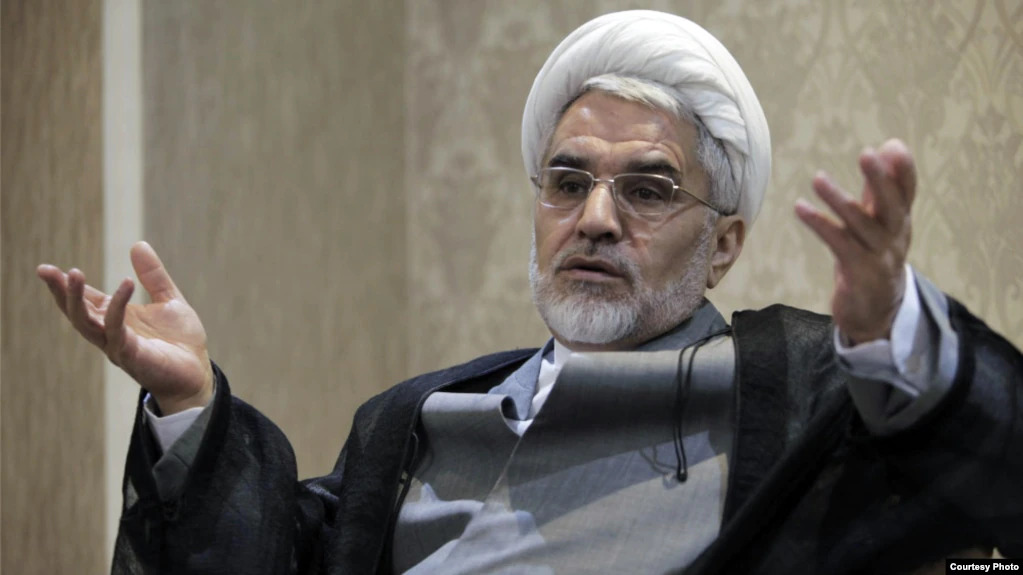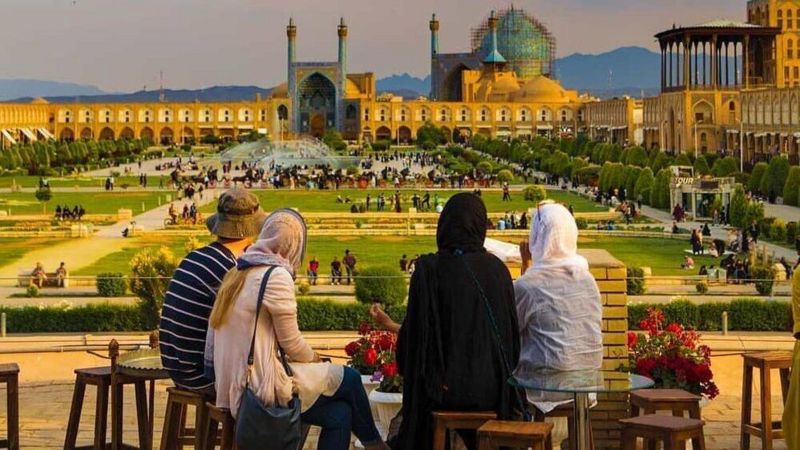
Real Reason for Drop in National Currency, People’s Purchasing Power
The editorial of Setareh Sobh explains why the Iranian national currency is rapidly losing its value as it is becoming more and more difficult for people to buy their essential goods.
If small and big events in human society are studied from sociological, political, economic and foreign relations perspectives, the real reasons become clear for what is happening in politics, economy, culture, etc. This approach does not exist in decision making in Iran. That is because when decisions are made randomly and the outcomes go wrong, the decisionmakers look for someone to blame, pinning the problems on this or that person. Here are some examples:
- Before the Iranian revolution, the price of the dollar in Iran’s Central Bank was 7 tomans per dollar, and in the free market, it was even less than that. Moreover, Iranians could buy dollars in all cities of the world at the same price. Last week, the price of the dollar passed 38,000 tomans per dollar [getting closer to 40,000 tomans per dollar rapidly]. Now, the question is, what has happened to increase the price of the dollar from 7 tomans to 38,000 tomans?
- After the revolution, the price of the dollar was constantly on the rise, but in 2005 when “hardline principlists” took charge of running the country, this escalation accelerated. In only three years, the price of the dollar reached 3,800 tomans.
- During Hassan Rouhani’s first government, the price of the dollar was about 4,000 tomans, and the process of the nuclear talks and the return of hope to society helped in stabilizing the market. The nuclear deal played a key role, and the price of the dollar did not significantly rise in those years. But in Rouhani’s second government, with the escalation of tensions between Tehran and Washington, selling oil became impossible and transferring money became difficult.
- It is Iran’s right to sell drones to Russia, but it should have been predicted that it would be costly for Iran. This policy has triggered more sanctions on Iran which in turn results in a drop in the value of the national currency and a decline in people’s purchasing power.
- The morality police, because of its poor performance, should have been disbanded many years ago. But it was not. When Mahsa Amini was killed in morality police custody, it was a chance for the Iranian authorities to disband this branch of the police force and prevent 3 months of unrest that have been underway in the country.
- The “hardline principlist” Parliament and government in Iran both supposed that by getting closer to China and Russia, Iran’s economic problems would be resolved. But in reality, China turned its back on Iran and signed a contract with Iran’s regional rival and asked Iran to give the ownership of the three contested islands to the UAE.
- Air pollution has made it difficult for Iranians to breathe for years. It gets worse year after year. Other countries have been able to overcome this issue by using technology, but how come Iran is still suffocating in smoke?
When people see all these problems, they lose hope in the government and in the future, and sometimes they convert their savings into dollars, gold, property, etc. or invest in other countries like Turkey, Iraq, Afghanistan, etc. Authorities must know that if there is no foreign or domestic investments in Iran, it will result in inflation, high prices, a drop in the national currency, a decline in purchasing power, etc.
Trial and Error by Governments in Resolving Social Problems
The editorial of Arman Emrooz argues that all Iranian governments have had a terrible record in resolving social problems.
A while ago, the head of Tehran’s Welfare, Services, and Social Participation announced the failure of the plan for rescuing child laborers from the streets. Meanwhile, the plan for rescuing these children from the streets was implemented 32 times last year, but to no avail. In fact, the plan has failed.
After going over the measures taken by governments to eradicate social problems, we should underscore that so far no government has been successful in this regard. Corruption is one of the obstacles in gaining people’s trust and participation. To gain social trust and people’s participation, the government must consult experts and specialists.
The other important issue is that of people’s livelihood, which requires the government to revise its own structure. For instance, one such measure is downsizing the government which has been ignored so far. Under the current circumstances, no individual or organization is against downsizing the government.
Today, however, social damage has become more widespread than before, requiring additional efforts. The structure of social management in the country today needs attention and revision. There must be reform in this regard. If reforms are not introduced, the current structure of governance cannot help society properly.
Ebrahim Raisi’s government must use competent managers in the social field, as one of the biggest challenges of the current government is that of incompetent mangers in this field.
Expedient for Who?
The editorial of Mardomsalari asserts that the Iranian government’s policies do not satisfy people’s demands.
With the growth and development of democratic states that rely on people’s collective will, politicians have started to pay more attention to concepts like public will and public good because the foundations of democratic societies, unlike states that are ruled on the basis of right, have secular origins. So, rulers must seek to keep society happy if they want to stay in power.
But what we can see in Iran these days shows that policies adopted by rulers are not in line with people’s demands, and people think so too. If the government and rulers identified and agreed to people’s demands, society would not act aggressively. It would rather support the government and its policies.
As public demands have changed with the passage of time, insisting on implementing policies that belong to the past cannot meet society’s demands. So, policies drafted in the name of the public good will backfire.
When a protester is executed in the name of public expediency, it does not increase public trust; rather it increases public anger and misgiving, because society sees the executed protester not as its enemy but as its representative. Any unfair and illegal elimination of protesters, therefore, will be interpreted as a danger against people’s right to determine their own destiny.
Moreover, when people demand democracy, freedom, a decent life, proportionate development, decreasing poverty and inequality, and an increase in welfare, any action that questions these demands or are against them cannot be interpreted as public expediency.
What the Iranian authorities have been negligent of so far is redefining the concept of public good, because what is called public expediency in Iran is against people’s demands. When the government cannot meet people’s demands, it will necessarily widen the gap between society and the government. As such, protests will spread across society creating small and big crises and ending in the collapse of the system.
The only solution is still for the authorities to listen to the protesters’ demands and adopt effective policies to meet them. Or else, society’s anger will increase and become unimaginably dangerous.
Let Us Rectify the Policies
The editorial of Arman Emrooz argues that Iran is facing serious problems regarding the destruction of natural resources and the erosion of infrastructure that require the Iranian government’s immediate attention, or else the country will be completely destroyed.
Perhaps, those who take part in the protests have political demands, but these are not the real problems in Iran. Iran has two main problems: one is that of resources like water and soil that are being destroyed, and the other is the erosion of Iran’s infrastructure like railroads and power plants. If this situation continues, the country will be destroyed.
Political issues are somehow reversible, but what is not reversible is when a country suffers from a lack of natural resources and the erosion of infrastructure. This necessitates a solution. If these issues are not resolved, the country will not be on the right path, even if the Constitution is amended or replaced.
Currently, there are different perceptions and understandings about the problems that exist in Iran. Policies and perceptions must be corrected; otherwise, any written law will have a different interpretation.
Those who are currently ruling the country must not adhere to a single view, because the world is constantly changing. The world and society are constantly changing. Countries were a certain way in the past but are different now. For instance, countries like Hungary, Czechoslovakia and Poland were once ruled by the communists and were very powerful. But now they have changed position, getting closer to the United States.
Iran must first identify the problems and then move toward resolving them. Problems cannot be resolved by just legislating and simply talking.

Khamenei’s Advisor: We Can Build a Nuclear Bomb, Do Not Intend To

While the IAEA team is visiting Tehran to discuss nuclear technical issues with Iranian officials, Kamal Kharazi, advisor to Iranian Supreme Leader Ali Khamenei, has once again underscored Tehran’s capability in producing nuclear weapons, calling nuclear technology “preemptive.”
Kharazi, also head of the Strategic Council on Foreign Relations, asserted that “today, we have high capacity in the nuclear field. We don’t intend to build nuclear bombs; we have the capacity, but we don’t intend to build a bomb.” He added that “of course, we also know that having nuclear technology is a preemptive [measure].”
The former Iranian foreign minister did not clarify what he meant by having nuclear technology, but one day prior to IAEA experts’ arrival in Tehran, Mohammad Eslami, head of Iran’s Atomic Energy Organization, announced an unprecedented increase in Iran’s uranium enrichment capacity.
The nuclear deal with Iran was signed with the intention of preventing Iran from achieving nuclear weapons, but Iran has always denied any such accusations.
According to the nuclear deal (JCPOA), Iran was allowed to enrich uranium at a very low level, but the Iranian government has breached the deal in recent years by considerably increasing the percentage of uranium enrichment and stockpiling enriched uranium.
For months, nuclear negotiations between the Iranian government and world powers for reviving the deal have been stalled, while the United States has questioned the Iranian government’s political will in restoring the deal, stating that currently these negotiations are not on the White House’s agenda.
The IAEA technical team visits Iran while last month the agency’s Board of Governors issued a resolution expressing its regret over Tehran’s lack of cooperation with the agency and the Iranian government not offering valid technical responses regarding the enriched uranium found in undeclared sites.
Observers hold that the nuclear talks between Iran and the West have reached a stalemate, and even if Iran and the IAEA reach a technical agreement, there will not be any progress regarding the nuclear dispute.
Human Rights Organization Warns Against Risk of Executing 39 Arrested Protesters

Iran Human Rights Organization (IHRO) has published the names and pictures of the 39 arrested protesters who are at risk of being executed. These individuals have been charged with “waging war against God,” “corruption on Earth,” and murder – all punishable by the death penalty in Iran.
Moreover, IHRO reported that so far at least 469 citizens, including 63 children and 32 women, have been killed in the nationwide protests, warning against the possible execution of the 39 protesters.
Among these, there is a rapper, a famous footballer, a physician, and a medical student.
While these protesters are charged with “waging war against God,” “corruption on Earth,” and murder, their attorneys and relatives have averred that there is no evidence in this regard, calling the charges baseless.
The Iranian revolutionary courts have accused the detained protesters of “deliberately setting fire to buildings to confront the Islamic government,” “collusion against domestic security,” “damaging individual and public properties,” “making Molotov cocktails,” and “participation in illegal gatherings.”
Earlier, Amnesty International had warned that following the arbitrary execution of two protesters, Mohsen Shekari and Majid Reza Rahnavard after holding “show trials” for them, now at least 26 individuals arrested during the nationwide protests are at risk of being executed.
Amnesty International added that death sentences against 11 of these arrested protesters have been issued, while the other 15 are heavily charged by the Iranian judicial system, waiting for their trials.
According to Amnesty International, these protesters have not had fair trials or access to a proper attorney, while they have been forced to make confessions against themselves.
The Iranian judicial system has deprived the arrested protesters of appointing lawyers for themselves.
So far, Mohsen Shekari and Majid Reza Rahnavard have been executed in the cities of Tehran and Mashhad.
Abdollah Nouri: People’s Voices Not Going to Be Heard

Former Interior Minister Abdollah Nouri in a statement asserted that the popular protests are because of “political, social obstruction and the failure of the reform movement” which have resulted in people losing hope for any improvements in the country’ conditions.
In his statement, Nouri criticized the government’s response to people’s demands, saying that instead of hearing the protesters’ voices and paying attention to the roots of these protests and its own role in the widespread problems all over the country, the Iranian government has attributed the protests to foreign agents and overseas media while opting for implementing violent crackdowns.
This senior “reformist” politician calls the current situation in the country a stalemate, explaining that the Iranian government has never listened to the voice of the majority of people.
Nouri then warned that if the government goes on without gaining the consent of the majority of people, it is going to face a lot of problems.
Iran Human Rights Organization has confirmed the deaths of at least 469 citizens, including 63 children, during the nationwide protests. Meanwhile, HRANA news agency has reported the arrest of about 18,500 people in different cities of Iran.
According to different human rights organizations’ reports, at least 39 protesters are in danger of the issuance or enforcement of death penalty sentences.
The deadly crackdowns on the nationwide protests – which were triggered 3 months ago after the death of Mahsa Amini in morality police custody – have drawn widespread domestic and international condemnation.
Even political parties, groups and figures close to the Iranian government have warned against the government’s recent moves.
The Iranian authorities, including Supreme Leader Ali Khamenei, still double down on calling the protesters “rioters” who have taken to the streets under the influence of foreign governments and overseas media.
At Least 65 Percent of Foreign Visits to Iran Cancelled During Recent Protests

According to the Iranian Ministry of Cultural Heritage, Handicrafts and Tourism, at least 65 percent of foreign visits to Iran have been cancelled after the recent nationwide protests in Iran.
Ali Asghar Shalbafian, deputy to the Ministry of Cultural Heritage, told ILNA news agency that “what is for sure is that more than 65 percent of foreign visits to Iran have been cancelled.”
Furthermore, recently the Hoteliers Association announced that due to the recent unrest in Iran, more than 85 percent of foreign tourists from European, American, and Asian countries have cancelled their trips to Iran.
Some organizations in charge of tourism in Iran have announced that Germany, Spain, Brazil, and Australia have cancelled their trips to Iran.
Most tourists entering Iran are from neighboring countries including Iraq; last year, according to official statistics, 1,957,000 people travelled to Iran while most of these trips were from neighboring countries.
According to Shalbafian, the number of tourists from neighboring countries like Iraq too have dropped but he attributed this to the beginning of the new academic year.
Iranian officials involved in the tourism industry have for decades blamed “negative advertising and Iranophobia” for the lack of interest among foreign tourists to go to Iran. The main obstacle, however, has been the lack of social freedoms and the possibility of arbitrary arrests of foreign citizens, particularly dual nationals, which has intensified in recent years.
In recent years, Iran has removed visa requirements for certain countries to attract more tourists, but compared to neighboring countries like the UAE and Turkey, it has not been successful in attracting foreign travelers.
Iran had high hopes that during the recent World Cup in Qatar, it might obtain a share in this big market, but after the recent nationwide protests, tourists changed their minds about staying in Iran and cancelled their bookings.
